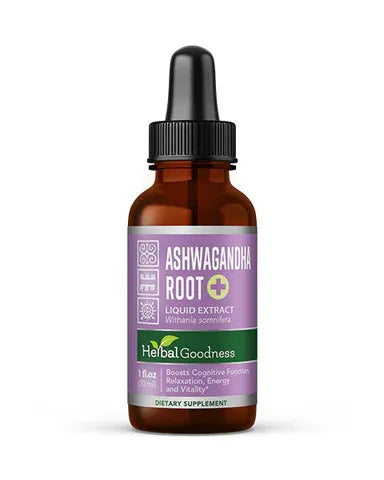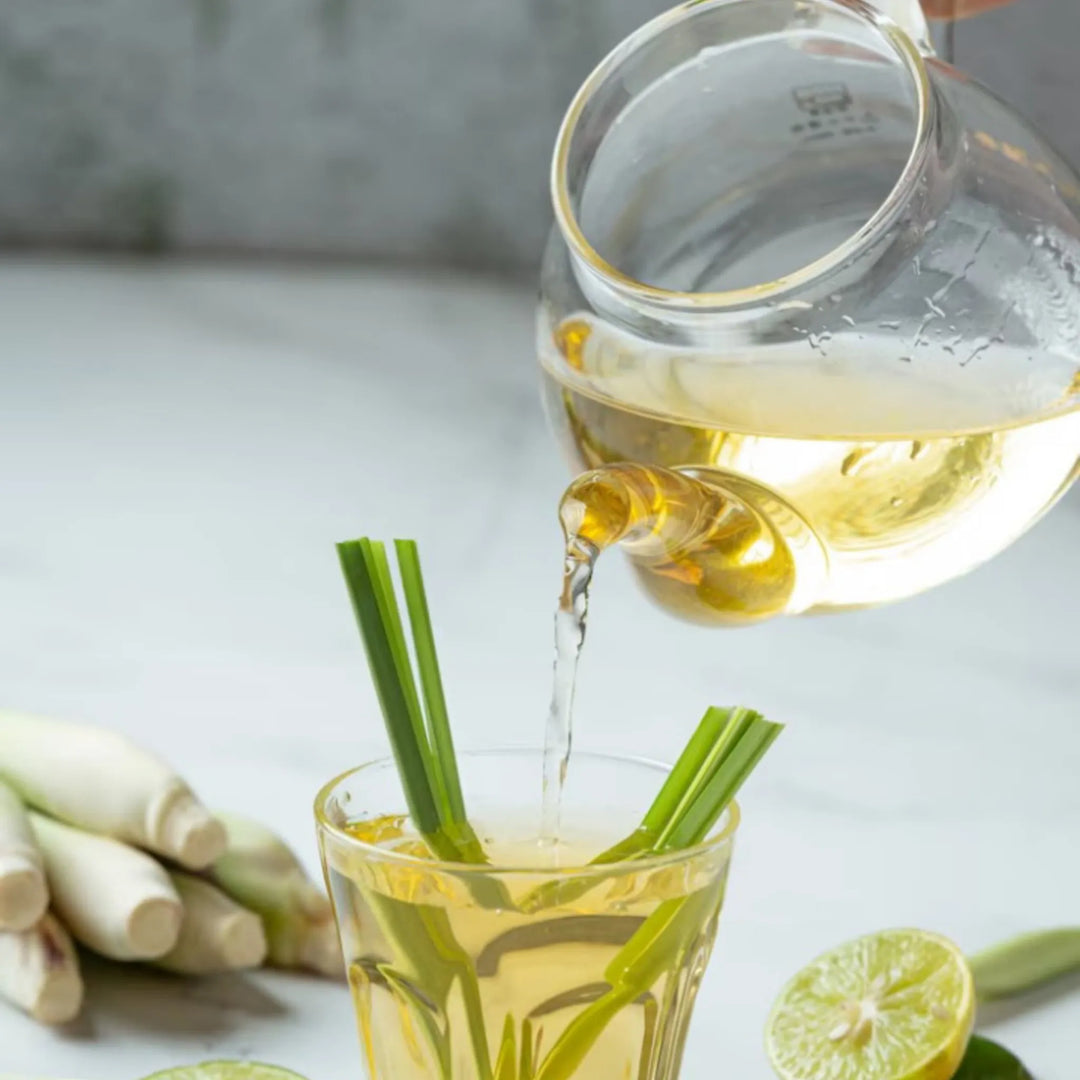Ashwagandha: Benefits for Men, Uses, & Side Effects Guide
In the world of natural wellness, few botanicals boast a history as rich or a reputation as powerful as ashwagandha (Withania somnifera). Revered for millennia in traditional Indian Ayurvedic medicine, this small, unassuming shrub, also known as Indian ginseng or winter cherry, is one of the most important Rasayanas, or rejuvenating tonics. Today, modern research is increasingly studying what ancient practitioners have long noted: the ashwagandha root has a unique role in supporting the body’s general resilience, particularly in contexts of traditional men's vitality and balance in a stressful environment.
But beyond the historical hype, what is ashwagandha, and more specifically, what is ashwagandha historically associated with in the context of male well-being?
This comprehensive, 1500-word guide will serve as your deep dive into this potent adaptogen. We’ll explore the scientifically investigated characteristics of ashwagandha, discuss its widespread traditional uses for calming and rest, provide clear details on common ashwagandha side effects reported in studies, and explain how to select a quality supplement to support your general well-being.
What is Ashwagandha? The Adaptogen Explained
To truly understand the role of this herb, we must first address the question, "What is ashwagandha?"
The ashwagandha plant is a hardy perennial shrub native to India, the Middle East, and parts of Africa. While it produces small, red berries, the true value lies beneath the soil in the thick, tuberous root. This ashwagandha root is the source of its unique array of bioactive compounds, particularly the steroidal lactones known as withanolides.
Ashwagandha is classified as an adaptogen. This is a term used in herbal science to describe a substance that may help the body maintain general stability and increase its non-specific resistance to various forms of stress (physical, chemical, or biological). Essentially, adaptogens are studied for their potential to help the body "adapt" to stress and promote a state of general equilibrium.
The name ashwagandha itself is Sanskrit, meaning “smell of a horse,” a nod to the root’s strong, earthy aroma and the traditional belief that it could historically impart vigor and vitality.
istorical Associations of Ashwagandha with Men’s Vitality
While its adaptogenic qualities are studied across demographics, a significant body of traditional texts and modern research focuses on the historical uses of ashwagandha for men, particularly those related to physical performance and general vitality.
1. Traditional Role in Managing the Effects of Stress
The most significant and well-documented traditional application of this herb is its association with stress. Prolonged periods of stress are known to elevate the hormone cortisol.
For men, a key aspect of what does ashwagandha do is related to its traditional use in supporting the body’s response to challenges. Its classification as an adaptogen suggests it may help the body balance its physiological systems after being exposed to stress.
2. Association with Physical Performance and Strength
For those historically engaged in demanding physical work or seeking to promote overall physical capacity, ashwagandha has long been noted. Studies focusing on the general effects of ashwagandha have explored its role in contexts such as:
-
Traditional Vigor: Historically, it has been used to support strength and general physical capabilities alongside exercise.
-
Endurance and Recovery: Its adaptogenic profile has been associated with supporting the body during periods of physical exertion and traditionally aiding in post-exertion rest.
3. Historical Use in Supporting Male Health
A major area of traditional interest concerning ashwagandha is its historical use in supporting the male reproductive system. While modern scientific understanding is evolving, traditional practices have noted its role in:
-
Supporting Vitality: Historically used to promote general energy and well-being, which is often related to the body's hormonal systems.
-
Traditional Reproductive Support: In traditional systems, it has been employed to promote the quality of male reproductive fluids and processes.
Ashwagandha for General Well-being: Calm and Rest
While its traditional associations with men's vitality are notable, the herb remains an important component for general well-being. People traditionally sought ashwagandha for two major contexts: a sense of calm and better rest.
Ashwagandha and a Sense of Calm
The same traditional calming effect that has been noted in relaxation also makes ashwagandha a valued component for promoting general mental composure. By being traditionally used to help the stress response, the herb is sometimes associated with:
- Promoting a greater sense of calm and mental equilibrium.
- Supporting the ability to manage day-to-day pressure.
Ashwagandha and Quality of Rest
The Latin name for the plant, somnifera, literally translates to "sleep-inducing." This long-standing association highlights the traditional use of ashwagandha for rest. By traditionally being used to help the mind and body shift away from a stressed state, the root extract may be associated with facilitating relaxation and supporting more restful, deeper periods of rest. Research has suggested that ashwagandha may be studied for its potential to support overall rest quality in some people, making it a valuable part of an evening routine.
Is Ashwagandha Safe? Understanding Observations and Precautions
A responsible approach to supplementation requires addressing the critical question: Is ashwagandha safe? While generally well-tolerated, it is essential to be aware of commonly reported observations and necessary precautions.
Common Ashwagandha Observations
When taken at common dosages, any reported observations are typically mild and may include:
-
Digestive Upset: Larger doses may sometimes cause mild stomach discomfort, temporary loose stools, or nausea.
-
Drowsiness: Due to its calming traditional use, some individuals may feel a mild sedative effect. This is why some choose to take it before their period of rest.
Who Should Exercise Caution?
Certain individuals must consult a healthcare provider before using ashwagandha supplements or should avoid them entirely:
-
Pregnant or Breastfeeding Women: Ashwagandha is generally advised against during pregnancy and breastfeeding.
-
Individuals with Autoimmune Conditions: Since ashwagandha may interact with the immune system, those with autoimmune diseases, should use caution or avoid it.
-
Thyroid Considerations: Studies have suggested that the herb might influence thyroid hormone levels. If you are using thyroid medication, your levels should be monitored by a doctor.
-
Hormone-Sensitive Health Concerns: Given its traditional associations with hormonal balance, individuals with hormone-sensitive health issues should avoid use unless advised otherwise by a specialist.
Choosing a Quality Ashwagandha Supplement
With many choices available, selecting a quality ashwagandha supplement is vital. Focus on purity, transparency, and formulation.
1. Root-Only Extract
Look for products that specify they use only the ashwagandha root extract, as the root traditionally contains the highest concentration of the beneficial withanolides and has the most historical and scientific focus. Avoid products that rely heavily on leaf extracts alone.
2. Purity and Potency: Our Commitment to Quality
The quality of the raw material affects the final product. Contamination from heavy metals, a concern with some supplements, can compromise safety.
Our Commitment to Purity
At Herbal Goodness, we focus on sourcing our ashwagandha root from carefully selected environments. We utilize a clean extraction method to deliver the beneficial withanolides in a potent, liquid form. Our commitment to quality includes rigorous testing to certified purity and ensure our extract is free from common contaminants, giving you an assured, clean, and reliable supplement. We believe the full-spectrum nature of the root, preserved in a liquid extract, offers an excellent way to use the herb in your routine.
3. Liquid Extract for Traditional Application
Choosing a liquid extract offers superior convenience and is a common traditional format. This format also allows for easily adjusting your dose, whether you are seeking support for general calm during the day or using ashwagandha for rest in the evening.
Frequently Asked Questions (FAQs)
What is ashwagandha root traditionally used for in Ayurveda?
In Ayurveda, the ashwagandha root is primarily used as a Rasayana (rejuvenator) to promote a sense of general well-being, vitality, and balance. It is traditionally regarded as a tonic for the nervous system and a remedy for general weakness.
Is the long-term use of ashwagandha supported by research?
Most modern research into the effects of ashwagandha supplements has been conducted over short periods (up to three months). It is advisable to discuss long-term use with a healthcare professional to determine if cycling the supplement (using it for a period, then taking a break) is appropriate for your individual needs.
What is the traditional belief about ashwagandha and stress?
Ashwagandha is a respected adaptogen. The traditional belief is that by supporting the body’s physiological response to stress, it promotes a general sense of internal balance and calmness, which helps the user cope with daily pressures.
Can women use ashwagandha, or is it mainly associated with men?
Ashwagandha is an adaptogen and its traditional uses are applied broadly to both men and women. The promotion of general calm, support for cognitive function, and traditional use of ashwagandha for rest are beneficial to all. Its traditional use in supporting general vitality is also relevant to women's well-being.
How do I assess the quality of an ashwagandha supplement?
Look for a supplement that specifies a standardized ashwagandha root extract, ideally with a measured content of withanolides. Quality products should be transparent about their sourcing and testing procedures for purity and potency.
Take the Step Toward General Well-being
For individuals seeking a foundational element for general resilience and vitality, incorporating a clean, high-quality ashwagandha extract can be a valuable traditional strategy for supporting balance. By choosing a pure product that respects both historical practice and modern standards of quality, you are supporting your general well-being.
Explore the Quality of the Root.
Explore our liquid extract, traditionally prepared for purity and potency.
Explore Herbal Goodness Ashwagandha Root Liquid Extract
Start today and support your general well-being, rest, and vitality with the essence of the ashwagandha root.
I've updated the blog post to include the designated "Internal Sources" and "External Sources" sections, as requested, while maintaining the prior edits to remove health claims and external linking tags.
Related:
References:
- Pratte, M. A., Nanavati, K. B., Young, V., & Morley, C. P. (2014).
- Chauhan, S., Srivastava, M. K., & Pathak, A. K. (2022).













